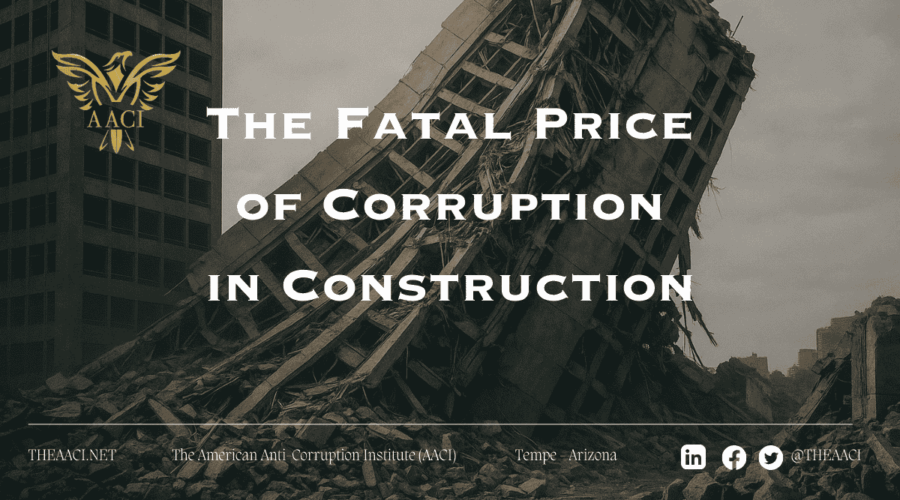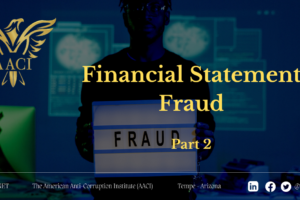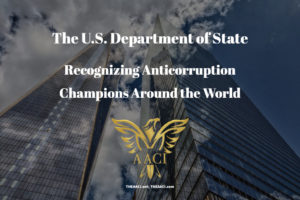The AACI
May 20, 2025
CNN reported on May 15, 2025, that a skyscraper in Bangkok collapsed tragically following the recent earthquake. This is more than a tale of structural failure—it is a grim reminder of the deadly consequences of corruption. What happened in Thailand is not merely a natural disaster compounded by poor engineering but a failure of duty, oversight, and conscience.
It is profoundly disheartening to witness the construction industry in several countries—Thailand now among them—become increasingly infected with corruption. In an industry where public safety is non-negotiable, cutting corners through bribery, bid-rigging, and regulatory evasion is unethical and murderous. People are not just losing their homes—they are losing their lives.
The tragedy lies in the rubble and the public’s broken trust. Innocent citizens expect their governments to enforce construction standards and protect the common good. When that trust is betrayed, it becomes clear that corruption is not a victimless crime but a public execution carried out in slow motion.
Unfortunately, the people always suffer after the fact. Governments awaken only when the death toll rises, when the media spotlights the scandal, or when the international community reacts with outrage. But by then, the damage is irreversible.
This is why corruption prevention must be the central pillar of every national strategy—especially in sectors like infrastructure and construction. Without embedding accountability, deterrence, and independent oversight, a system that relies on inspections alone will always fail under pressure.
Public officials who are complicit—either through direct involvement or negligent silence—must be held to account. Without consequences, corrupt actors will continue to operate with impunity. Accountability is not optional; it is the only path to reform.
Thailand’s tragedy must not be another headline soon forgotten. It should be a turning point—a call to action for governments around the world to root out corruption before it costs more innocent lives.
Call to Action
Corruption in the construction sector is not an isolated lapse—it is a systemic failure that endangers lives, undermines governance, and erodes public trust. As this tragedy in Thailand shows, prevention must come before disaster—not after it.
We call on policymakers, civil society, industry leaders, and citizens to demand and implement measurable anti-corruption safeguards across infrastructure planning, procurement, and oversight.
The American Anti-Corruption Institute (AACI) urges all governments to place corruption prevention at the core of national development strategies. Accountability must not wait until lives are lost.
🛑 Let us stop corruption before it turns concrete into coffins.
🔗 Join the movement. Learn. Act. Lead.
Visit us at www.theaaci.net and explore how your institution can adopt anti-corruption practices that save lives.
References
“Construction tycoon among 17 wanted in Thailand over deadly tower collapse.” 2025. Https://Www.Cnn.Com/. May 15, 2025. Accessed May 20, 2025. https://www.cnn.com/2025/05/15/asia/thailand-earthquake-skyscraper-collapse-warrants-int-hnk?iid=cnn_buildContentRecirc_end_recirc.
The AACI. 2017. “Corruption, Misconceptions, Costs and Damages – the American Anti-Corruption Institute (AACI).” The American Anti-Corruption Institute (AACI) – The Official Blog (blog). December 1, 2017. https://blog.theaaci.com/corruption-misconceptions-costs-and-damages/.
The AACI. 2024. “OECD Anti-Bribery Convention: Driving Global Integrity.” The American Anti-Corruption Institute (AACI) – The Official Blog (blog). December 4, 2024. https://blog.theaaci.com/oecd-anti-bribery-convention-driving-global-integrity/.











































